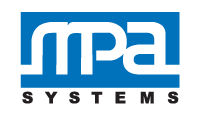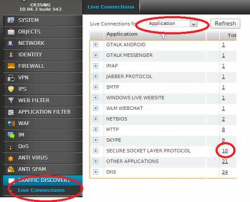CONTENT & APPLICATION FILTERING
Enterprises face heavy financial damage due to entry of viruses, malware, worms, Trojans, spyware, and more through malicious websites. Phishing, pharming and spyware may lead to theft of passwords, identity theft and loss of other confidential information.
Indiscriminate Internet surfing by internal users leaves enterprises vulnerable to legal liabilities, besides loss of productivity. Unrestricted use of file-sharing applications like IM and P2P and multimedia downloads cause risk of data loss or leakage as well as bandwidth choking, draining the enterprise resources.
Cyberoam Content and Application Filtering
Cyberoam gateway security appliance’s content & Application Filtering feature controls Internet access through its comprehensive database of millions of sites segregated into more than 82+ categories. WebCat, Cyberoam’s automated web categorization engine has one of the industry’s best and most comprehensive URL database to protect enterprises against emerging threats
Enterprises can create custom categories for groups that are unique to their enterprise to customize the security cover delivered by Cyberoam’s web filtering solution. Cyberoam’s database is available on the appliance itself, delivering low latency and eliminating network dependency in contrast to other products where the site database resides on a remote server requiring a query at the time of site access.
Cyberoam’s Internet content filtering solution plays a critical role in ensuring CIPA certification to school districts and libraries. Moreover, Cyberoam is also an active member of the Internet Watch Foundation (IWF), a global hotline which combats child sexual images and other Internet pedophilia activities
Is Web Surfing affecting your Network Security?
Are your users accessing malware-laden sites?
Or blocked IM, P2P applications through web proxies?
Are your machines a part of malicious botnets?
Is your bandwidth choked from MP3, video downloads?
Do you know Who is Surfing What?
Application Filtering
The advent of cloud computing has changed the security and bandwidth requirements in organizations, as internal applications (e.g. Google Docs, Salesforce, Microsoft Sharepoint etc.) are competing for bandwidth with traditional, web-based applications.
Cyberoam’s application layer filtering allows enterprises to gain visibility into Application Layer 7 irrespective of the application origin. This enables them to prioritize any business application to enhance productivity, while preventing non-productive applications such as Youtube, Facebook and P2P from cornering bandwidth.
Safe Search – Filter Adult Content
Safe Search allows organizations to control search results from Google, Yahoo and other search engines. When enabled, websites containing pornography and explicit sexual content can be blocked.
Identity-based Access and Reporting – Know “who is doing what”
Cyberoam Content & Application Filtering can be configured to create access policies based on groups, departments, levels in hierarchy or even the individual user. Cyberoam uses ADS, RADIUS, SSO, local, thin client for user authentication. This allows enterprises to create differential policies based on work profile to finance, marketing, HR departments or for educational institutions based on academic requirement for students, staff and administrators.
Cyberoam’s GUI dashboard offers enterprise-wide view of web access which drills down to user-level reporting with extensive reports on data transfer, applications used, sites visited, search engine usage profile and much more. This allows enterprises to control unproductive surfing and high bandwidth-consuming downloads that may drain corporate resources and expose enterprises to legal liabilities.
CIPA Compliance – Protecting Students
Cyberoam’s powerful web filtering allows school districts and libraries to enforce an Internet safety policy that filters inappropriate Internet usage in order to meet federal CIPA requirements that makes them eligible for E-Rate funding.
Cyberoam’s extensive site database and highly granular identity-based policies protect students from accessing inappropriate content, emails or chat rooms by blocking or filtering web access based on work profiles, with categories like adult content, drugs, gambling, violence, computer security and more.


